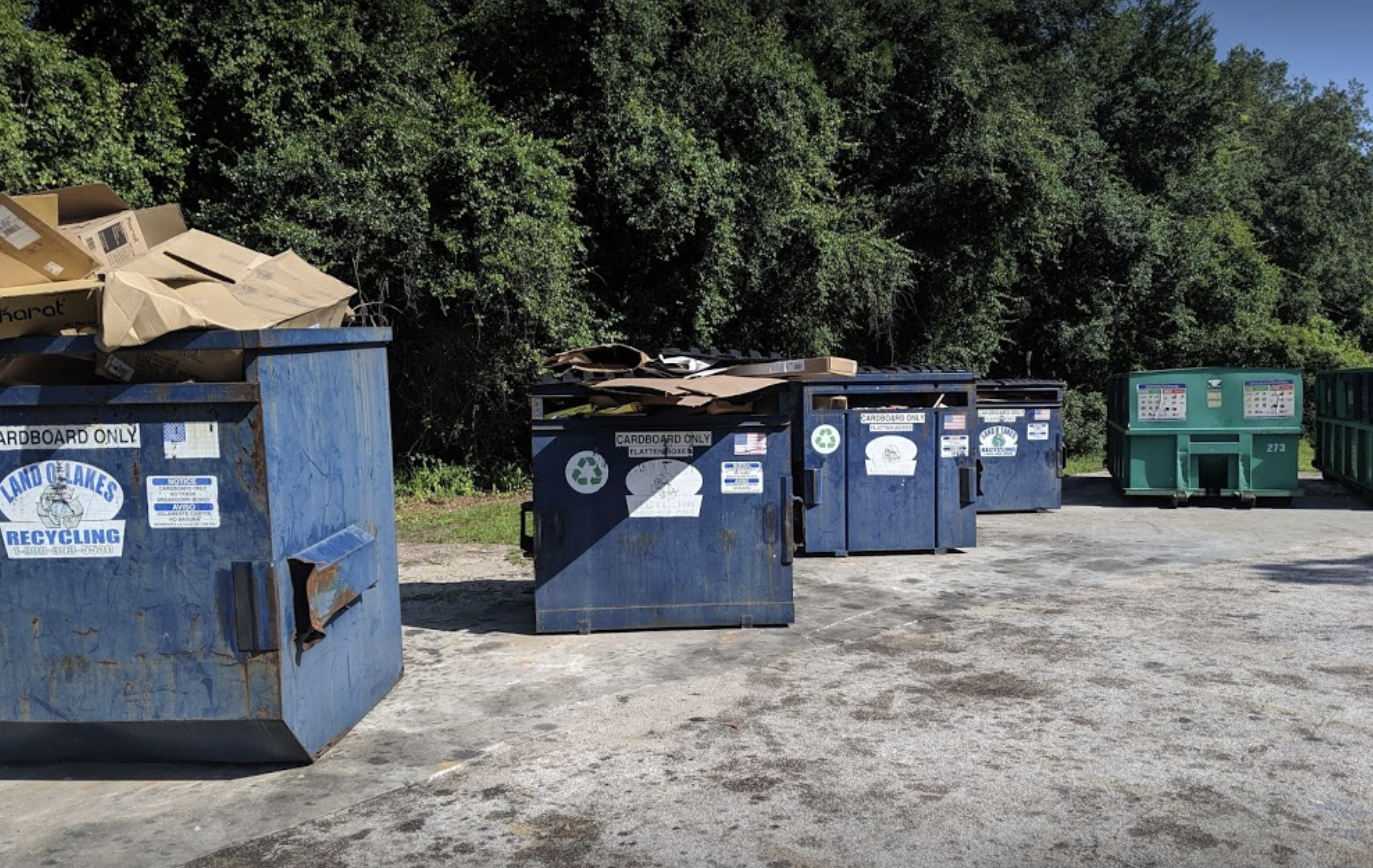OPINION: Failed initiative shows USF neglects environmental platform

Recycling has been advertised for decades as an easy way to contribute to the reversal of negative environmental impacts like climate change and mass pollution. Despite the university’s dedication to sustainability, USF announced July 7 that it would be removing the recycling drop-off station on Sycamore Drive due to improper usage of the containers.
“The drop-off site at USF was used as a dumping ground and created a negative environmental impact on the site and for the USF campus, which was the opposite of its intended purpose,” said Chief of Administration at Tampa’s Department of Solid Waste and Environmental Programs Adriana Colina in a Sept. 14 article from The Oracle.
The removal of this recycling station is unacceptable. As a university that created the Student Green Energy Fund to eliminate greenhouse gas emissions from the Tampa campus, the administration and local government should feel obligated to provide easy ways for students to get involved in protecting our planet and further promote a cause USF claims to care about.
The Student Green Energy Fund, created to help students and faculty execute their own ideas on how to better our community’s environment, is paid for through student tuition every year, which was about $1.9 million across all campuses in the 2019-2020 school year. Estimated expenditures on utilities, waste and fuel, though, came out to $0.
Students and citizens’ inability to use the recycling facility correctly is not a reason for the removal of the containers, but rather it is a sign that the administration needs to improve environmental education in the community.
USF has been praised many times for its attempts at creating a sustainable and progressive campus.
Its environmental engineering graduate program is ranked No. 35 in the nation, according to the U.S. News and World Report. With this degree, graduates can work in fields that help progress research for environmental issues.
USF was also acknowledged as one of the top sustainable campuses in the country dedicated to renewable energy in the 2019 Sustainable Campus Index by the Sustainability Tracking Assessment and Rating System, a framework that universities use to self-report and measure their sustainability performance, according to the system’s website.
The American Academy of Environmental Engineers and Scientists also recognized USF in 2018 for its work in countering water waste pollution, which included employing “passive biofilters that absorb nutrients in household wastewater from sinks, showers, laundries and toilets [and] using low-cost materials like natural zeolite minerals, scrap tire chips, elemental sulfur pellets and crushed oyster shells,” according to the College of Engineering News Room on the USF website.
This project was made possible through the Center for Reinventing Aging Infrastructure for Nutrient Management, an Environmental Protection Agency (EPA) program worth $2.5 million that distributed a grant to USF along with only three other universities in the country to research sustainable decision-making, according to the EPA.
A university that is so prestigiously ranked and receives such selective funding for its environmental contributions has no reason to take steps backward in the name of sustainability.
The removal of the recycling station could be detrimental to the progressive habits that the university has attempted to enforce in the past. There are still many recycling bins around the USF campus. The university has provided at least one outside of every residence hall, yet those who live off campus may not take this into consideration.
Many off-campus apartment complexes don’t provide recycling bins for their residents at all, and with the removal of the containers, students and citizens who care enough about the earth to drive to campus to recycle have been forced to find another drop-off location that could be an even further drive and serious inconvenience.
USF has the ability and budget to do much better in its attempts at making the three campuses greener. UF, for example, has not only created a plan to reduce 90% of its waste but also switched all of its waste management vehicles to compressed natural gas, which is a more sustainable replacement for diesel fuel, according to the UF Facilities Services page.
The inappropriate use of the recycling bins was a missed opportunity for the university to teach students about recycling and sustainable activity. The university and the Department of Solid Waste and Environmental Programs could have worked together to create a communitywide curriculum on how to correctly recycle waste. Instead, they took the easy and less expensive way out.







